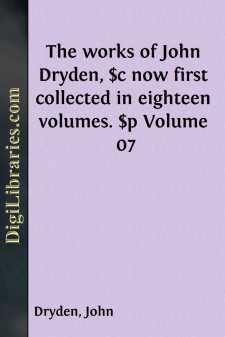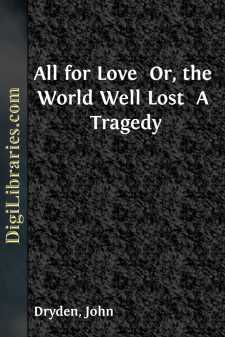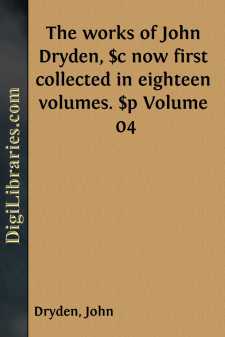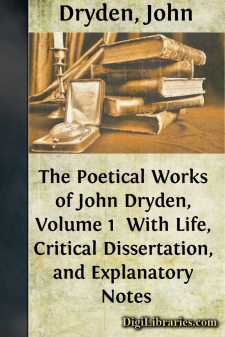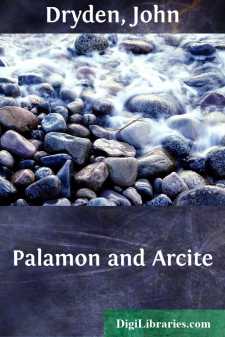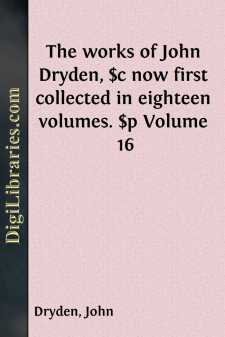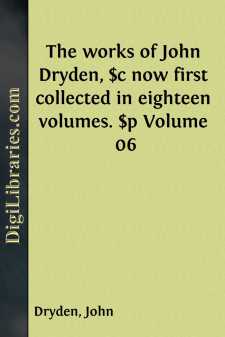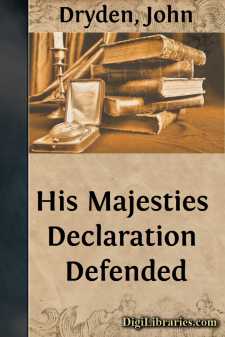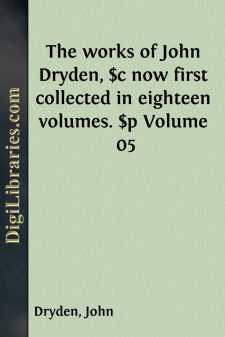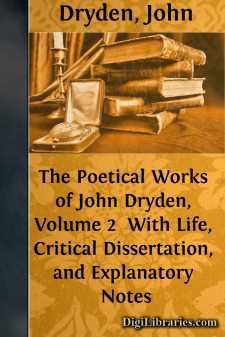Categories
- Antiques & Collectibles 13
- Architecture 36
- Art 48
- Bibles 22
- Biography & Autobiography 813
- Body, Mind & Spirit 142
- Business & Economics 28
- Children's Books 17
- Children's Fiction 14
- Computers 4
- Cooking 94
- Crafts & Hobbies 4
- Drama 346
- Education 46
- Family & Relationships 57
- Fiction 11829
- Games 19
- Gardening 17
- Health & Fitness 34
- History 1377
- House & Home 1
- Humor 147
- Juvenile Fiction 1873
- Juvenile Nonfiction 202
- Language Arts & Disciplines 88
- Law 16
- Literary Collections 686
- Literary Criticism 179
- Mathematics 13
- Medical 41
- Music 40
- Nature 179
- Non-Classifiable 1768
- Performing Arts 7
- Periodicals 1453
- Philosophy 64
- Photography 2
- Poetry 896
- Political Science 203
- Psychology 42
- Reference 154
- Religion 513
- Science 126
- Self-Help 84
- Social Science 81
- Sports & Recreation 34
- Study Aids 3
- Technology & Engineering 59
- Transportation 23
- Travel 463
- True Crime 29
The works of John Dryden, $c now first collected in eighteen volumes. $p Volume 07
by: John Dryden
Categories:
Description:
Excerpt
DUKE OF GUISE.
A TRAGEDY.
Ουτως δε φιλοτιμοι φυσεις εν ταις πολιτειαις το αγαν μη φυλαξαμεναι, τωι
αγαθου μειζον το κακον εχουσι.
Plutarch. in Agesilao.
003In the latter part of Charles the Second's reign, the stage, as well as every other engine which could affect the popular mind, was eagerly employed in the service of the contending factions. Settle and Shadwell had, in tragedy and comedy, contributed their mite to the support of the popular cause. In the stormy session of parliament, in 1680, the famous bill was moved, for the exclusion of the Duke of York, as a papist, from the succession, and accompanied by others of a nature equally peremptory and determined. The most remarkable was a bill to order an association for the safety of his majesty's person, for defence of the protestant religion, for the preservation of the protestant liege subjects against invasion and opposition, and for preventing any papist from succeeding to the throne of England. To recommend these rigid measures, and to keep up that zealous hatred and terror of the catholic religion, which the plot had inspired, Settle wrote his forgotten tragedy of "Pope Joan," in which he revives the old fable of a female pope, and loads her with all the crimes of which a priest, or a woman, could possibly be guilty. Shadwell's comedy of the "Lancashire Witches" was levelled more immediately at the papists, but interspersed with most gross and scurrilous reflections upon the English divines of the high church party. Otway, Lee, and Dryden were the formidable antagonists, whom the court opposed to the whig poets. Thus arrayed and confronted, the stage absolutely foamed with politics; the prologues and epilogues, in particular formed channels, through which the tenets of the opposite parties were frequently assailed, and the persons of their leaders and their poets exposed to scandal and derision.
In the middle of these political broils, Dryden was called upon, as he informs us, by Lee, to return the assistance which that poet had afforded in composing "Œdipus." The history of the Duke of Guise had formerly occupied his attention, as an acceptable subject to the court after the Restoration. A League, formed under pretence of religion, and in defence of the king's authority, against his person, presented facilities of application to the late civil wars, to which, we may be sure, our poet was by no 004 means insensible. But however apt these allusions might have been in 1665, the events which had taken place in 1681-2 admitted of a closer parallel, and excited a deeper interest. The unbounded power which Shaftesbury had acquired in the city of London, and its state of factious fermentation, had been equalled by nothing but the sway exercised by the leaders of the League in the metropolis of France. The intrigues by which the Council of Sixteen placed and displaced, flattered or libelled, those popular officers of Paris, whom the French call echevins, admitted of a direct and immediate comparison with the contest between the court and the whigs, for the election of the sheriffs of London; contests which attained so great violence, that, at one time, there was little reason to hope they would have terminated without bloodshed....


